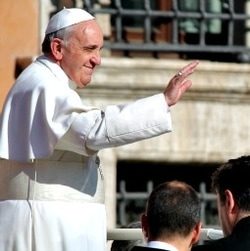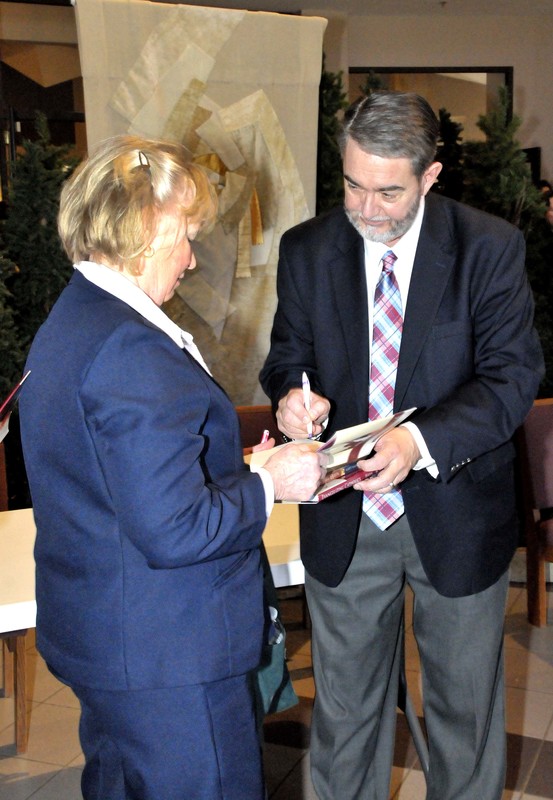Adult Faith Formation

The aim of all Christian education, moreover, is to train the believer in an adult faith that can make him a "new creation", capable of bearing witness in his surroundings to the Christian hope that inspires him. (Sacramentum Caritatis)
Do not presuppose the faith but propose it...Faith is not maintained automatically. It is not "finished business" that we can simply take for granted. The life of faith has to be constantly renewed. And since faith is an act that comprehends all the dimensions of our existence, it also requires constantly renewed reflection and witness. (Gospel, Catechesis, Catechism).
"'Christian anthropology' is concerned about what God has revealed about the origin, nature, woundedness, vocation, salvation by Jesus Christ, and destiny of the human person. Influenced by secularism and relativism, some . . . base their understanding of the human person on subjective human experience without reference to God, Revelation, or natural and divine law. Based on a faulty anthropology, they come to quite different conclusions than the Catholic Church [founded by Christ] about human nature and a host of moral issues such as the need for forgiveness, participation in sacramental life, human relationships, the meaning of redemptive suffering and death, reproductive technology, and end-of-life issues--to name just a few. Ongoing catechesis can assist Catholics in understanding and practicing their faith without compromise" (Sacramental Catechesis, p. 5).
According to our Bishops, in their document, "Our Hearts Were Burning Within Us," Adult Faith Formation is critical to our mission to evanglize. It should have three goals: 1) Invite and encourage ongoing conversion to Jesus in holiness of life; 2) Promote and support active membership in the Christian community; 3) Call and prepare adults to act as disciples in mission to the world. This requires active evangelization in every parish by both lay persons and clergy. Souls are at stake. As Pope Francis has written:
"The new evangelization calls for personal involvement on the part of each of the baptized. Every Christian is challenged, here and now, to be actively engaged in evangelization; indeed, anyone who has truly experienced God's saving love does not need much time or lengthy training to go out and proclaim that love. Every Christian is a missionary to the extent that he or she has encountered the love of God in Christ Jesus . . ." (The Joy of the Gospel, p. 63).
Running your own bible study? Click here for some tips.
Do not presuppose the faith but propose it...Faith is not maintained automatically. It is not "finished business" that we can simply take for granted. The life of faith has to be constantly renewed. And since faith is an act that comprehends all the dimensions of our existence, it also requires constantly renewed reflection and witness. (Gospel, Catechesis, Catechism).
"'Christian anthropology' is concerned about what God has revealed about the origin, nature, woundedness, vocation, salvation by Jesus Christ, and destiny of the human person. Influenced by secularism and relativism, some . . . base their understanding of the human person on subjective human experience without reference to God, Revelation, or natural and divine law. Based on a faulty anthropology, they come to quite different conclusions than the Catholic Church [founded by Christ] about human nature and a host of moral issues such as the need for forgiveness, participation in sacramental life, human relationships, the meaning of redemptive suffering and death, reproductive technology, and end-of-life issues--to name just a few. Ongoing catechesis can assist Catholics in understanding and practicing their faith without compromise" (Sacramental Catechesis, p. 5).
According to our Bishops, in their document, "Our Hearts Were Burning Within Us," Adult Faith Formation is critical to our mission to evanglize. It should have three goals: 1) Invite and encourage ongoing conversion to Jesus in holiness of life; 2) Promote and support active membership in the Christian community; 3) Call and prepare adults to act as disciples in mission to the world. This requires active evangelization in every parish by both lay persons and clergy. Souls are at stake. As Pope Francis has written:
"The new evangelization calls for personal involvement on the part of each of the baptized. Every Christian is challenged, here and now, to be actively engaged in evangelization; indeed, anyone who has truly experienced God's saving love does not need much time or lengthy training to go out and proclaim that love. Every Christian is a missionary to the extent that he or she has encountered the love of God in Christ Jesus . . ." (The Joy of the Gospel, p. 63).
Running your own bible study? Click here for some tips.

